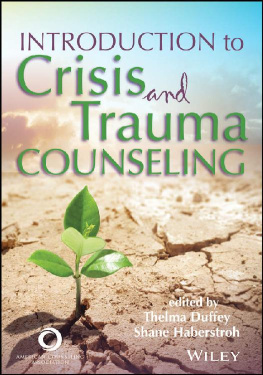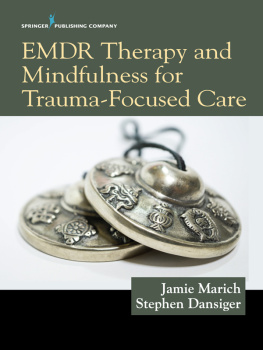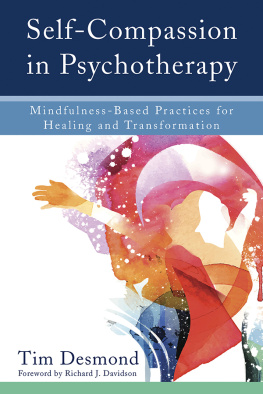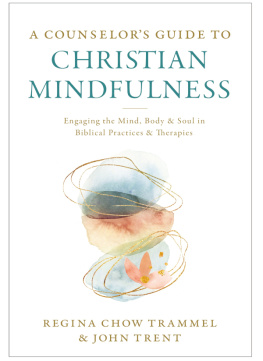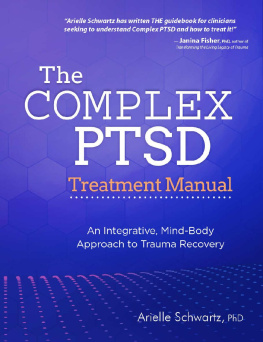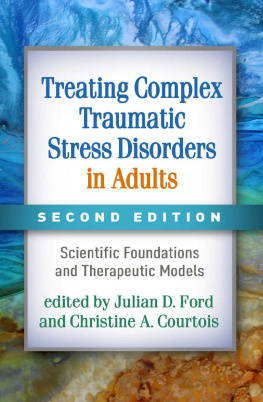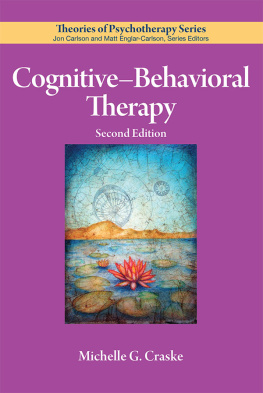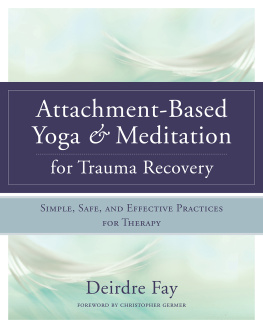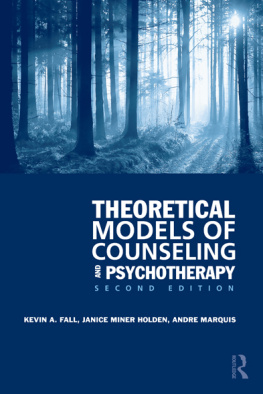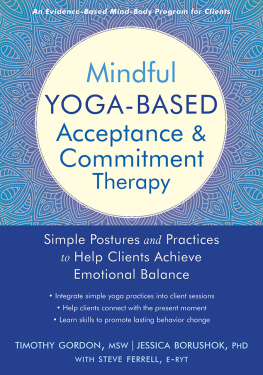Table of Contents
List of Tables
- Chapter 5
- Chapter 7
List of Illustrations
- Chapter 3
- Chapter 5
- Chapter 11
Guide
Pages
INTRODUCTION to Crisis and Trauma COUNSELING
edited by
Thelma Duffey and shane Haberstroh

6101 Stevenson Avenue, Suite 600 Alexandria, VA 22304
www.counseling.org
Copyright 2020 by the American Counseling Association. All rights reserved. Printed in the United States of America. Except as permitted under the United States Copyright Act of 1976, no part of this publication may be reproduced or distributed in any form or by any means, or stored in a database or retrieval system, without the prior written permission of the publisher.
American Counseling Association
6101 Stevenson Avenue, Suite 600 Alexandria, VA 22304
Associate Publisher Carolyn C. Baker
Digital and Print Development Editor Nancy Driver
Senior Production Manager Bonny E. Gaston
Copy Editor Tyler Krupa
Cover and text design by Bonny E. Gaston
Library of Congress Cataloging-in-Publication Data
Names: Duffey, Thelma, editor. | Haberstroh, Shane, editor.
Title: Introduction to crisis and trauma counseling / edited by Thelma Duffey and Shane Haberstroh.
Description: Alexandria : American Counseling Association, 2020. | Includes bibliographical references and index.
Identifiers: LCCN 2019054174 | ISBN 9781556203770 (paperback)
Subjects: LCSH: Counseling psychology. | Counselor and client. | Crisis intervention (Mental health services)
Classification: LCC BF636.6 .I5797 2020 | DDC 158.3dc23
LC record available at https://lccn.loc.gov/2019054174
Dedication
This book is dedicated to the children and staff at
Sandy Hook Elementary School and their families,
and to the Sutherland Springs community and surrounding areas.
To the Jeremy Richman family and the Mathew Molak family, and to
the counselors and mental health professionals
who walk alongside them.
Preface
Life brings its blessings and its tragedies, and in the midst of it all, growth-fostering, healing relationships can leave an indelible mark on our psyches and in our lives. The literature is replete with data that now show the intrinsic value of supportive therapeutic relationships and the ways in which they can inspire growth and promote healing following devastating losses. As an introductory text to crisis and trauma counseling, we present an integration of cutting-edge, evidence-based theoretical constructs and models used in crisis and trauma work by counselorssuch as cognitive behavioral therapy, behavioral therapy, neurofeedback, and mindfulness-based practicesand we underscore the fundamental role that relationship plays in therapeutic healing.
Throughout the course of our more than 15-year collaboration, we (Thelma and Shane) continue to discuss challenges and opportunities related to counseling and the complexities that people face in living life. As referenced in , we have partnered in responding to numerous community traumas and challenges, and we have worked with hundreds of people who have shared their healing journeys with us. We have also researched and published various works and imagined the content and tenor of a book that focused on a counselors work with crisis and trauma. When we were afforded the opportunity to write this introductory text on crisis and trauma counseling, we had a vision for what we hoped to offer our readers. We also invited the visions of colleagues who generously shared their expertise and experiences related to their practices in crisis and trauma counseling. As you read this text, know that you have a community of scholars and practitioners who share in this most important work with you.
Now, we invite you to think for a moment to a time when you may have desperately wanted to help a client or another person, but in spite of your best efforts, you were unsuccessful. Consider the dynamics that interfered with your ability to truly connect in a way that your client could trust. Perhaps it was hard for your client to trust that she or he could be helped or that you would know how to help. Perhaps, the latter may have even been the case. It could also be that your client feared being truly genuine and honest with you, afraid that your judgment would be ultimately painful. Perhaps your clients painful experiences with previous authority figures made it difficult to imagine a different outcome with you. Alternatively, oppressive societal messages could induce shame and mistrust within your client that could make authentic disclosure understandably challenging.
One of the goals of this text is to think about our clients by considering their current and historical social contexts and by exploring nuanced and progressive views of relational dynamics to help navigate the process of healing. We also provide a relational roadmap for how to truly see and be with your clients in ways that take into account the challenges that all relationships, including therapeutic ones, invariably bring. We explore the role that power, privilege, culture, and context play in navigating a growth-fostering therapeutic process in crisis and trauma work.
This book is intended for counselors and mental health professionals interested in learning evidence-based, cutting-edge theories and practices in crisis and trauma counseling, and we introduce a relational framework attuned to offering dignity and respectful care. Relational-cultural theory (RCT) affords dignity and provides theory-grounded guidance to conceptualize the complexities inherent in healing counseling relationships. We also introduce and describe the wide range of modalities used in trauma-specific counseling and trauma-informed care. We believe that readers familiar with RCT will resonate with the growth-fostering principles involved in therapeutic work as applied to crisis and trauma counseling. In addition to evidence-based models frequently used in crisis and trauma work, readers unfamiliar with RCT will be introduced to a progressive counseling theory that informs and complements the numerous evidence-based practices and models included in this text.
Manualized practices offer potential structures for what many counselors do in crisis and trauma counseling. For example, cognitive processing therapy (Resick, Monson, & Chard, 2014) and trauma-focused cognitive-behavioral therapy (TF-CBT; Cohen, Mannarino, & Deblinger, 2006) outline processes to explore maladaptive trauma-related cognitions and provide steps to desensitize people to the acute distress and avoidance of traumatic memories (Resick et al., 2014). As we outline the informed research base and structure offered by evidence-based treatments, we invite you to share in our commitment to provide relational and creative counseling with people living in the immediacy or aftermath of crises and traumas.
A major emphasis in this text explores how and who we are with people in distress. provide a rich framework for conceptualizing the dynamics and processes in relationships that bring life-sustaining connections, authentic experiencing, and shared power. The established literature in counseling and trauma research emphasizes the centrality of the bonds and shared creativity formed in the counseling space. In this introductory preface and throughout the text, we articulate how we see the extant research into the counseling relationship, creativity in counseling, and relational neuroscience support, and we validate the tenets of RCT proposed more than 40 years ago (Miller, 1976).

